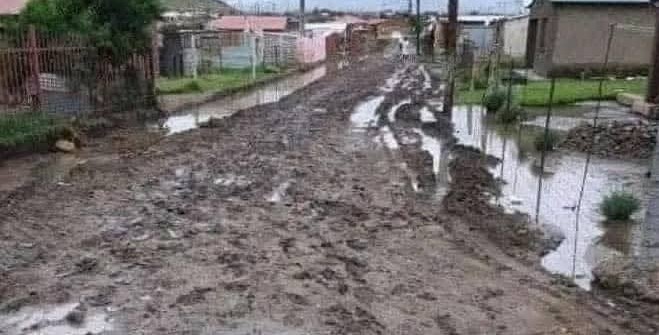
For years, residents of Juba’s Gudele, Hai-Referendum, and Mia-Saba in Juba have lived with broken roads, stagnant water, unreliable electricity, and limited access to healthcare.
Promises of development and better living conditions have come and gone, but little has changed on the ground. Now, weary of waiting, these communities are turning to the courts to demand what they see as their constitutional right.
Earlier this week, lawyers from Reign Legal issued a formal notice of intention to sue the Ministry of Roads and Bridges, the Ministry of Environment and Forestry, and Juba City Council.
The legal notice accuses the institutions of failing to meet their obligations to provide basic public services. The case, if filed, will go before the Supreme Court of South Sudan.
For residents, the struggle is deeply personal. Apajok Ayuen, a mother of six from Mia-Saba, says her children often miss school whenever heavy rains turn the unpaved roads into muddy pools.
She added that traders in the neighborhood face the same burden, she adds, as transporting goods to markets becomes costly and sometimes impossible.
According to her public transport costs rise when vehicles are damaged by potholes, and ambulances sometimes fail to reach patients in time.
“We have endured too much,” said mama Ayuen, who welcomed the decision to pursue legal action.
“If the government won’t act, then the court must compel them.”
At the heart of the petition is the Transitional Constitution of South Sudan, which guarantees rights to life, dignity, and a clean environment.
According to the legal notice, the poor condition of roads in the affected neighborhoods has left them nearly impassable, restricting access to schools, hospitals, and markets.
Residents say the situation has also increased transport costs, caused frequent accidents, and destroyed vehicles, while stifling trade and agriculture.
“The government’s neglect has made life unbearable, and we now have no choice but to seek redress through the courts,” the petitioners’ counsel, Mario Maker Majok, stated.
The petition is anchored in the Transitional Constitution of South Sudan, 2011 (as amended), which guarantees the right to life, human dignity, a decent standard of living, and a clean environment.
The residents argue that by ignoring their plight, the state institutions are in breach of Articles 9, 11, 37, and 41 of the Constitution. They are also invoking international human rights instruments that South Sudan has ratified.
By highlighting these provisions, the communities argue that the state’s neglect is more than poor governance, it is a violation of fundamental rights.
The petitioners are seeking wide-ranging remedies: a court declaration that the failures are unconstitutional, an order compelling road rehabilitation, temporary tax relief for affected residents and businesses, and compensation for economic and social losses.
Legal experts note that if successful, the case could open the door for similar actions by citizens across the country, testing the power of the judiciary to hold institutions accountable.
But beyond legal arguments and constitutional clauses, the story is deeply human. It is about children walking to school through mud, mothers struggling to reach health clinics, and families forced to live in conditions that undermine dignity.
By going to court, these communities are not just demanding roads or clean water, they are demanding recognition that their lives and livelihoods matter.
For South Sudan, a nation still grappling with state-building, the lawsuit is a reminder that development is not only about political promises but also about the delivery of services that shape everyday life.

